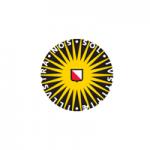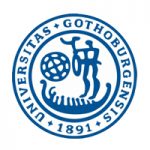项目介绍
The department of Earth Sciences external link is looking for a highly motivated PhD candidate with an MSc Palynology, Micropaleontology, Organic Geochemistry and/or Oceanography. You will work on the project “Ice-ocean interactions in West Antarctica during rapid transitions in past warm climates”. In this four-year study, you will reconstruct in detail the oceanographic changes close to the West-Antarctic ice sheet during prominent deglaciations in the Pliocene and Pleistocene.
Your job
You are expected to generate multiple records of organic-walled dinoflagellate cyst assemblages crossing glacial-interglacial transitions from sediment cores that were collected by the British Antarctic Survey and through the International Ocean Discovery Programme. In addition, the project involves the generation of organic geochemical biomarker records from the same sedimentary records, which will complement the reconstruction of ecosystem, ocean and climate variability. Alongside this, there are opportunities to generate sedimentological and inorganic geochemical data on the sediment core as well, which are indicative of both ocean and ice dynamics.
A personalised training programme will be set up, mutually agreed on recruitment, which will reflect both your training needs and career objectives. As part of this training, up to 10% of your time will be dedicated to assisting in the BSc and MSc teaching programmes of the Earth Sciences department.
The position is part of a larger interdisciplinary project, that includes a postdoctoral researcher with whom you will closely collaborate. Both positions are funded by the Dutch National Science Foundation NWO in a special call of the Polar Programme in collaboration with the British Antarctic Survey. The positions are based in the Marine Palynology & Paleoceanography group at the Department of Earth Sciences in Utrecht, NL. Regular visits to the British Antarctic Survey in Cambridge, UK, are foreseen, e.g. for scientific discussions and to perform analyses.
Your qualities
We are looking for a candidate with commitment to overcome the challenges faced in working with complicated material from close to Antarctica. This project really seeks a problem-solver, one that isn’t let down by the first disappointment. You demonstrate the capability to contribute yourself to the planning and organisation of your work, with a keen interest in taking initiatives for the direction in which it develops.
You must have completed your MSc degree in Earth Sciences, Environmental Sciences, Biology or a related discipline by the time the position starts. Preferably, you also have:
- experience or strong interest in paleoclimate/paleoceanography;
- experience in palynology/micropaleontology is highly appreciated;
- experience in working in a laboratory or willingness to learn;
- experience in (in)organic geochemistry is a pro;
- a love for microscope work and teamwork, willingness to travel (also abroad);
- adequate social/verbal/communication skills.
Due to the international character of our research, good command of spoken and written English is essential. We highly encourage applicants from all members of our community and of diverse backgrounds to join us.
Our offer
We offer:
- a position for one year, with an extension to a total of four years upon a successful assessment in the first year;
- a working week of 36 hours and a gross monthly salary between €2,770 and €3,539 in the case of full-time employment (salary scale P under the Collective Labour Agreement for Dutch Universities (CAO NU));
- 8% holiday pay and 8.3% year-end bonus;
- a pension scheme, partially paid parental leave and flexible terms of employment based on the CAO NU.
In addition to the terms of employment external link laid down in the CAO NU, Utrecht University has a number of schemes and facilities of its own for employees. This includes schemes facilitating professional development external link, leave schemes and schemes for sports and cultural activities external link, as well as discounts on software and other IT products. We also offer access to additional employee benefits through our Terms of Employment Options Model. In this way, we encourage our employees to continue to invest in their growth. For more information, please visit Working at Utrecht University external link.
About us
A better future for everyone. This ambition motivates our scientists in executing their leading research and inspiring teaching. At Utrecht University external link, the various disciplines collaborate intensively towards major strategic themes external link. Our focus is on Dynamics of Youth, Institutions for Open Societies, Life Sciences and Pathways to Sustainability. Sharing science, shaping tomorrow external link.
Utrecht University’s Faculty of Geosciences external link studies the Earth: from the Earth’s core to its surface, including man’s spatial and material utilisation of the Earth – always with a focus on sustainability and innovation. With 3,400 students (BSc and MSc) and 720 staff, the faculty is a strong and challenging organisation. The Faculty of Geosciences is organised in four Departments: Earth Sciences, Human Geography & Spatial Planning, Physical Geography, and Sustainable Development.
The department of Earth Sciences external link conducts teaching and research across the full range of the solid Earth and environmental Earth sciences, with activities in almost all areas of geology, geochemistry, geophysics, biogeology and hydrogeology. The department hosts a highly international tenured staff of over 50 scientists and more than 110 PhD candidates and postdoctoral researchers. Our research programme spans four intertwined themes: Climate & Life, Earth interior, Earth materials, and Environmental Earth Sciences. We house or have access to a wide variety of world-class laboratories.
The Marine Palynology & Paleoceanography group external link focuses with four permanent staff members on paleoceanographic and paleoenvironmental reconstructions in the entire Phanerozoic, specifically by looking at organic microfossils, usually in close collaboration with additional disciplines in the department and abroad. There is a close link between this project and the paleoclimate research within the virtual Netherlands Earth System Science Centre (NESSC), which focuses on tipping points within the climate system, and its successor, the Earth System Feedback Research Centre, which will run at least until 2035. This brings together a large cohort of PhD candidates in a national highly interdisciplinary and strongly collaborative (paleo-)climate community.
The department and its facilities are located at Utrecht Science Park. Utrecht is the fourth largest city in the Netherlands with a population of nearly 360,000 and forms a hub in the middle of the country. Its historical city centre and its modern central station can easily be reached from the Science Park by public transport or by a 15-minute bicycle ride. Utrecht boasts beautiful canals with extraordinary wharf cellars housing cafés and terraces by the water, as well as a broad variety of shops and boutiques.
More information
For more information, please contact Dr Peter K. Bijl external link at p.k.bijl@uu.nl, or Dr Francesca Sangiorgi external link at f.sangiorgi@uu.nl.
Candidates for this vacancy will be recruited by Utrecht University. Commercial response to this ad is not appreciated.
Note that international candidates that need a visa/work permit for the Netherlands require at least four months processing time after selection and acceptance. This will be arranged with help of the International Service Desk (ISD) external link of our university. Finding appropriate housing in or near Utrecht is your own responsibility, but the ISD may be able to advise you therewith. Unfortunately, we must warn that it is a tight market at the moment. In case of general questions about working and living in The Netherlands, please consult the Dutch Mobility Portal external link.
Apply now
As Utrecht University, we want to be a home external link for everyone. We value staff with diverse backgrounds, perspectives and identities, including cultural, religious or ethnic background, gender, sexual orientation, disability or age. We strive to create a safe and inclusive environment in which everyone can flourish and contribute.
To apply, please send the following documents via the ‘apply now’ button:
- your curriculum vitae, including any courses taken that are relevant for the position;
- a letter that clearly demonstrates your motivation for the position;
- the (e-mail) addresses of at least two possible referees. No reference letters need to be submitted in your initial application. If you are short-listed, we may choose to contact your referees.
We aim for a quick selection procedure after the application deadline. We intend to interview candidates on 27 and 29 August 2024. The intended starting date is 1 November 2024 or as soon as possible thereafter.
The application deadline is 31 July 2024.
联系方式
电话: +31 (0)30 253 35 50相关项目推荐
KD博士实时收录全球顶尖院校的博士项目,总有一个项目等着你!





